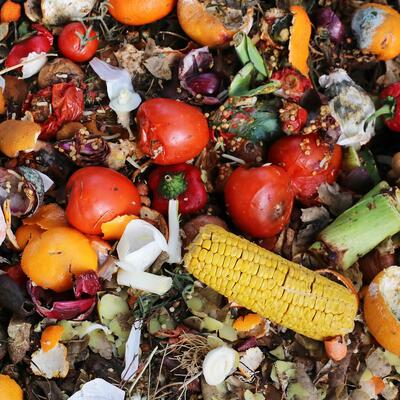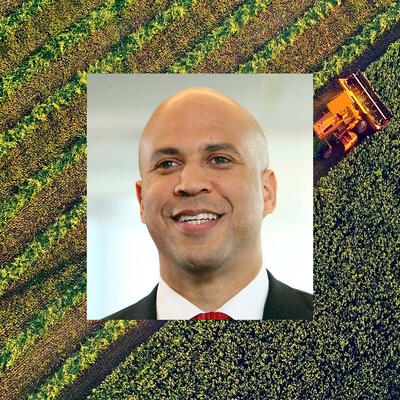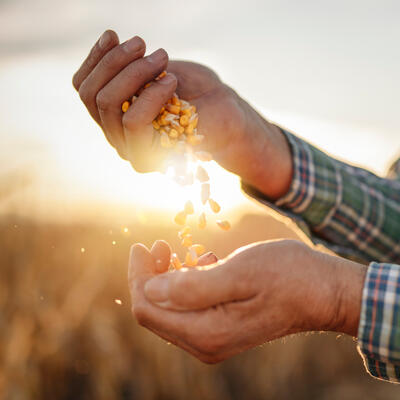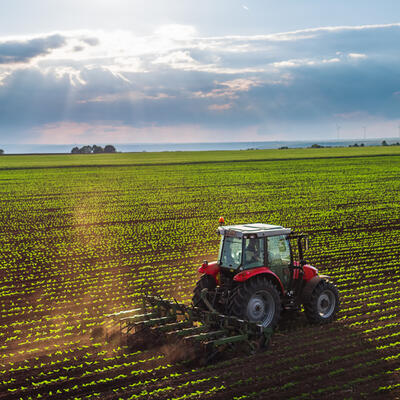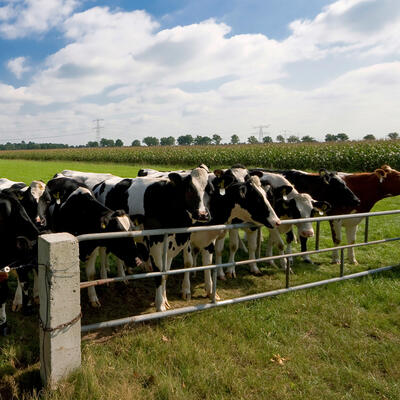
Corn, Cars and Cows
Guests
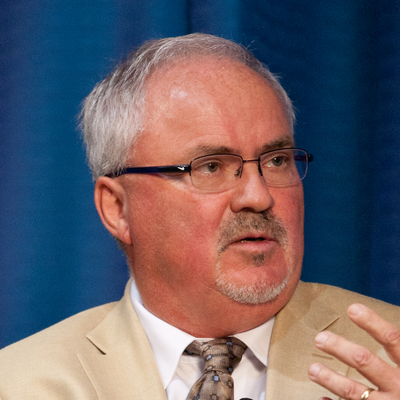
Colin Carter
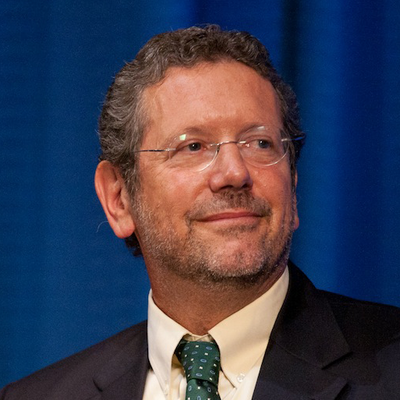
Neil Koehler
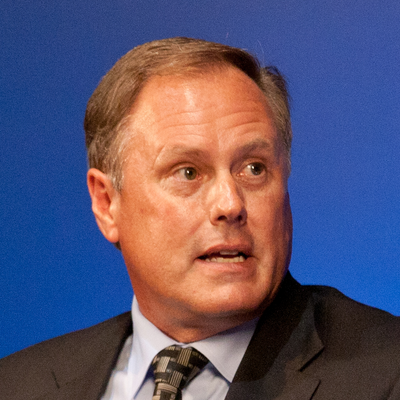
Michael Marsh
Summary
While ethanol burns cleaner than gasoline, some researchers argue its production makes it less than environmentally friendly. University of California, Davis professor of agricultural economics Colin Carter says ethanol is not a low-carbon fuel in part “because of greenhouse gases put out by other countries that have torn down forests to produce corn.” Pacific Ethanol CEO Neil Koehler claims corn-based fuels are cleaner than petroleum and reduce greenhouse gases. Critics say corn that could be used for feeding livestock is now going into gas tanks, and U.S. ethanol policies may have driven up food prices by 20 to 30 percent. Does corn have a place in powering America’s future?
Colin Carter, Professor, Agricultural Economics, UC Davis
Neil Koehler, CEO, Pacific Ethanol
Michael Marsh, CEO, Western United Dairymen
Full Transcript
Greg Dalton: America is corn country. The United States is by far the world's largest producer and the starchy plant is included in a growing array of non-food products, including sandpaper, eye shadow, tires and diapers. Corn's popularity is putting upward pressure on prices, and that is hitting both consumers and companies.
Forty percent of the country's corn is used to make ethanol that is mixed with gasoline to make a cleaner. A third of U.S. corn goes to feed cows, chickens, and pigs. The livestock and dairy industries say, "Blending corn with gasoline drives up animal feed cost, and ultimately food prices at the grocery store." Advocates of corn ethanol contended it's cleaner than gasoline and say, "The food versus fuel fight is overblown."
I'm Greg Dalton, and over the next hour we'll discuss corn, cars and cows with our live audience at the Commonwealth Club in San Francisco. We're pleased to have with us three guests deeply involved in the debate over king corn.
Colin Carter is professor of Agricultural Economics at the UC Davis; Neil Koehler is CEO of Pacific Ethanol; and Michael Marsh is CEO of Western United Dairymen. Please welcome them to Climate One.
[Applause]
Colin Carter: Thank you.
Greg Dalton: Welcome gentlemen. Colin Carter, let's begin with you. When do we start to put corn in gasoline and why?
Colin Carter: Well, in 2001, I think about 1 percent of gasoline was ethanol and more recently it's closer to 10 percent. Why?
Well, there was a belief after 9/11 that the U.S. wanted to become more independent in terms of its energy source. So there was a belief that using food for fuel would reduce our dependence on foreign sources of energy and there was also a belief that this was good for the environment. So I think it was sold for those reasons and others.
Greg Dalton: And with the government that said -- that push this, it wasn't an industry, it was a government mandate from Washington, right?
Colin Carter: Well, it was the industry. It was Big Corn that was basically behind it.
Greg Dalton: Okay. Michael Marsh, what's been the impact on dairy and agriculture industry of this push to put corn in gas tanks?
Michael Marsh: It's been devastating. If you're feeding livestock and you're producing food for human consumption, this policy has been absolutely devastating. Over the past seven years, we've probably lost about 25 percent of the family dairy farms in the state of California, and a big contributor to that has been the cost of corn that you want to feed your cattle.
Greg Dalton: And we're getting to some of those different drivers for the cost of corn. We'll get into some of that later but you think that corn ought to be fed to animals and not put into fuel?
Michael Marsh: I think corn should be used for food rather than for fuel.
Greg Dalton: Okay. Neil Koehler, do you think that corn is cleaner than gasoline and fossil fuels and that's a big issue for climate change?
Neil Koehler: Absolutely. I mean I firmly believe that the displacement of 10 percent of our gasoline in the United States with ethanol has been a profoundly positive impact in reducing our petroleum dependence. In fact, it's been the only meaningful thing we've done in this country to reduce our very dangerous dependence on petroleum. It has been supported by the Renewable Fuel Standard, which I'm sure we'll be discussing as well, which we think has been the most effective policy both from an energy environmental standpoint to both address the issue of the petroleum monopoly and to provide significant environmental benefits.
Greg Dalton: Well, let's get at this whether this key issue of whether gasoline blended with corn is cleaner. Colin Carter, the life cycle analysis if you include the land use, the water, the petroleum fertilizer, all of that, how does corn and oil come out?
Colin Carter: I think corn loses. In fact, there was a study done by the National Academy of Sciences in 2011 that pointed out initially when EPA did the numbers, they found that ethanol from corn created more greenhouse gases than gasoline did. The EPA sharpened the pencil and brought that number closer to where it was palatable, but there's a number of studies and it's interesting because the European Union, in many respects, is far ahead of the United States when it comes to environmental policy.
And just this past year, the European Union has done a U-turn when it comes to the belief that ethanol or biodiesel is good for the environment. And once they have accounted for the land use effects that you mentioned increased production of soybeans and corn in Brazil and Argentina and China and other parts of the world and palm oil in Malaysia and Indonesia, the Europeans are now backing away. They've reduced their mandate on biofuels from 10 percent from crop sources to 5 percent. So I think we should follow the European's lead.
Greg Dalton: And just to clarify that, so when corn prices go up, people switch to other types of inputs, soybean et cetera, and that's what you're talking about?
Colin Carter: Well, there's a number of factors here. When corn prices go up because we're shifting corn to fuel, taking it off the food supply, that increases corn production in other parts of the world. For example, Brazil has doubled their corn exports just in the last four or five years. At the same time, it draws up prices of other commodities because it's competing for the same land such as soybeans and other commodities.
Greg Dalton: Okay. All right, Neil Koehler, is corn cleaner than gasoline?
Neil Koehler: Corn is definitely cleaner than gasoline very significantly and the most recent studies are all showing that on a direct full-life cycle basis, depending on how you produce it, the ethanol we produce in California happens to be some of the cleanest, but the range is 40 percent to 60 percent cleaner than gasoline on a full-life cycle basis on a carbon accounting. Even with indirect land use, which is pretty hypothetical science, it is a 35 -- recent study by the DOE and produce scientists conclude it was 35 percent cleaner.
So when we need to get every increment of carbon reduction we can from fuels, and certainly in California with fuels being 60 percent of the CO2 emissions. If we can get that kind of reduction, then that's what we need to be doing. The European community is in the process of reevaluating. They have not come to any final conclusions and they actually have been taking a fresh look at the science and it's showing a much larger benefit from biofuels as well.
Greg Dalton: I'd like to get at the cost driver question. We actually posted on our Facebook page a graphic that shows the factors behind increases in food cost; part of it is ethanol policy, the U.S. government saying, "You got to produce this bunch." Michael Marsh, is it also global demand is growing from China and other places? There's weather, there's disease, there's government tariffs restricting it. So pending the rising fuel cost only on corn ethanol, that could be a distortion or unfair.
There's lots of factors driving up food prices is what some people would say.
Michael Marsh: Well, the most significant driver is ethanol policy in the United States, and whether you're somebody living on subsistence in Guatemala and Nicaragua or whether you're somebody in Egypt who doesn't have enough to eat, because we displace so much of the food going into fuel, it's creating turmoil across the planet, and that has to stop. It really has to stop.
Greg Dalton: Neil Koehler, we asked a couple of large oil companies to participate in this program and they declined because they said, "Look, we want to move -- people want to get away, even the big oil companies want to get away from this food versus fuel fight which is a losing battle." Would you agree that it's better to get biomass ethanol products from things that don't compete with animal and human food?
Neil Koehler: I think it's added to. I think there is so much misinformation because it is a false dichotomy and a false choice. First of all, the corn that we use to produce ethanol is not human food; it's feed. The small portion, less than 10 percent that is actual food is sugar, corn sugar that goes into soft drinks and other junk foods, arguably should come out of the food stream.
So it is really not human food, it is feed. Since ethanol came around in 2005 or the Renewable Fuel Standard, what we have seen is an incredibly and dramatic increase in the productivity of farmers responding to new markets and some higher prices. So this notion that we're diverting corn is actually completely false because what we've seen since 2005, is that there's actually more corn available for non-ethanol uses than there was before 2005. And we now are seeing a bumper crop. We're seeing prices that are back down the levels where farmers are still able to cover their cost of production but are very reasonable prices for all end users of corn.
So we've seen the market calibrate itself. We've seen farmers don't ever underestimate the productivity of the American farmer. They have responded in kind by growing, since 1980, virtually twice as much corn on the same amount of land.
Greg Dalton: Colin Carter, how about that? It's not -- a lot of the corn that goes in gas tanks is not suitable for human consumption. It's a false dichotomy.
Colin Carter: Okay, I'll come back to that, but first let me respond to Neil's comment. Yes, the price of corn has backed down to $5 a bushel, but before the Renewable Fuels Standard, it was $2.50 a bushel, so it's still double. They reached a peak of $8 a bushel.
The reason it's back to $5 a bushel is because Brazil and Argentina piling up pasture land or cutting down forests to grow corn. So that's the whole idea behind the indirect land use calculation. This is put on increased production of other countries, which releases greenhouse gases. So that's why the price has backed down.
In terms of this not being a food, I have to disagree. The number one input in American agriculture is feed grains. The U.S. is the largest producer in the world of corn, the largest exporter. There are studies by the International Monetary Fund, the FAO, the OECD that show very consistently that the U.S. ethanol policy has driven up food prices by 20 percent to 30 percent because this feed is used for the production of eggs, pork, dairy products and so on.
Greg Dalton: Neil Koehler?
Neil Koehler: Yeah, just to respond to that, the food inflation before -- since the Renewable Fuel Standard 2005 has been less than three percent globally. That is less than food inflation was in the 5 to 10 years before 2005. So I think the facts don't really support the notion that's raised the food price.
I also need to make sure people understand that as ethanol producers -- and this is why it's a false choice -- we are fuel and feed producers. So yes, 40 percent of the corn grown in the United States goes through our biorefineries; fully one-third of it comes back out as a much better feed.
Cows weren't actually genetically program to eat corn. They eat corn because it's a very cheap commodity. We take that corn. We take the feed value, which is the protein, the minerals and the fat. And in our fermentation process, we concentrate that into a much more valuable feed than the raw corn, and that's why we then sell that feed to Michael's members. Actually, virtually every dairy farm in California consumes our products; whether it be wet distillers' grains that we produce in California, dry distillers' grains, other co-products, so we're very synergistic. We built our plants next to dairies for that very reason.
And one other quick comment. Yes, in 2005, corn was $2 and $2.50 a bushel in that range which was fully $2 to $3 less than the cost to produce it and we as taxpayers made up the difference to the tune of $8 billion. We're no longer paying that out. There was a period of time when ethanol was getting subsidized never to the tune of $8 billion. Those subsidies expired.
The markets established itself when ethanol was there. We're no longer paying corn farmers to subsidize them to make up the difference, nor are we paying ethanol producers, yet we continue to subsidize to the tune of billions and billions of dollars of direct and indirect to the petroleum industry and that should stop.
Colin Carter: Well, Neil –
Greg Dalton: Colin Carter?
Colin Carter: -- those subsidies simply were capitalized into the price of land. We didn't have to pay those subsidies. Brazil doesn't pay those subsidies. Argentina doesn't pay those subsidies, and they've expanded their corn production.
So you're saying $2.50 is not enough they need subsidies, the subsidies resulted from special interest groups going to Washington D.C., the same as the RFS. They kept going to D.C. every year for the last 15 years, and finally after 9/11 and the spike in the price of oil, they hit the jackpot. They're special interest groups, Big Corn.
Greg Dalton: Big Corn got a sweetheart deal on this. Michael Marsh, let's get you on this.
Michael Marsh: Yeah, just a little visual. A semi-tractor trailer that is sitting on the road in California can be 80-feet long. And if you fill it, you have about 50,000 pounds of corn that you can put in to that semi. Now, if you were to go out in I-80 and have semi after semi, nose to tail, nose to tail, nose to tail, and you stretch them out, that would extend from San Francisco past Reno, Nevada on I-80, and that's one day's use of corn ethanol in the United States today.
To suggest that it hasn't had an impact on food prices is absurd. It really is. And when we talk about the feed aspect of it -- that's true, we do use the distillers' grains, but that's not the reason we use corn. We use corn not for the protein, not for the stuff you leave in it; we want to put the energy that you wanted for, too. So we're competing with you for the energy that's coming out of the corn kernel.
Greg Dalton: Well, how about Neil Koehler's previous point that cows weren't intended to feed on corn? If you read Michael Pollan's book "Omnivore's Dilemma", he talks about how humans are like walking corn chips, and a lot of places there's a premium for grass-fed beef. Some consumers prefer grass-fed beef based on some presumption that it's healthier, better, et cetera, that that's more natural to a ruminant diet.
Michael Marsh: Yeah, and that's a choice. I'm not a geneticist, so I really don't know or maybe Neil has been. I'm not.
So I really don't know whether or not that would be normal or not, but I think the consumers should have a choice. If you want grass-fed beef or milk coming from organic systems, that's wonderful. You have a choice here in the United States. But let's just think about it. If you were to perhaps consider that if you were to immediately turn the whole United States agricultural system and organic system, and you can only feed 175 million people with that organic system, who's going to be the one that picks and chooses who eats and who doesn't? I think you need both.
Greg Dalton: Yeah, well come people might challenge the math there in terms of how productive organic is et cetera, but I want to pick up on subsidies mentioned of fossil fuel subsidies and corn subsidies et cetera. There's also dairy subsidies, right? So everybody gets subsidized. Everyone likes to point to some other history subsidy but I want to ask Colin Carter. Doing away with some of the corn ethanol subsidies, was that a good thing?
Colin Carter: It was a start, yeah, with the tax credit that was eliminated, but there's still a tax credit for biodiesel.
Greg Dalton: And is that something you think should be done away with?
Colin Carter: Oh, absolutely.
Greg Dalton: And how are we going to, if there's a real carbon problem -- carbon challenge, how is the U.S. going to move it towards lower carbon fuels? What's the path there? Do you agree that climate change is real and serious and urgent, and then what's the path to low-carbon fuels? Colin Carter?
Colin Carter: I agree that climate change is a real issue but I also firmly believe, having read numerous published scientific studies that corn is not a low-carbon fuel and biodiesel is even worse. It's not a low-carbon fuel. So that is not the answer. It's actually making the situation worse.
Greg Dalton: Neil Koehler?
Neil Koehler: All I can point to is probably the most stringent carbon standard in the world which is California, is right here, Low Carbon Fuel Standard that requires a 10 percent reduction in carbon intensity between now and 2020 -- and they have scored all fuels, biodiesel, ethanol and natural gas, gasoline. Our ethanol has a score that is 20 percent, even with the indirect land use, it should be, in our view, closer to 50 percent, but in California it's 20 percent. And 80 percent of the compliance under the Low Carbon Fuel Standard, to date, has been met with ethanol. And California, I've been in this business for almost 30 years now in California; they've never been a big friend of corn ethanol because that was the Midwest.
Now we're doing it out here. They're gaining a little more appreciation for the economic, environmental and energy security benefits, but they have very good science. And they have determined that ethanol, not only is a low carbon fuel, but today is meeting 80 percent of those requirements.
Now that standard is great and is going to lead to electricity, more natural gas, higher gas mileage. So we do not believe that ethanol is the end-all. We believe that it's the most immediate, viable opportunity we have today and has been providing significant benefits on energy, environment, energy security today, tomorrow. Our plants will be using new feedstocks producing lower carbon fuels, but we have done an amazing thing as an ethanol industry in this country to achieve the results we have.
Greg Dalton: If you're just joining us on the radio, our guests today, that is Neil Koehler, CEO of Pacific Ethanol. Our other guests are Colin Carter, professor of Agricultural Economics at UC Davis; and Michael Marsh, CEO of Western United Dairymen. I'm Greg Dalton.
Colin Carter: Greg, may I ask Neil you a question?
Greg Dalton: Colin Carter? Sure.
Colin Carter: Neil, isn't it true that most of the ethanol plants in the United States are exempt from the EPA's 20 percent required reduction?
Neil Koehler: They're not –
Colin Carter: They grandfathered in.
Neil Koehler: They grandfathered in because they determined, they -- in fact, even with this hypothetical indirect land use that they achieved that.
In a new ethanol plant, corn ethanol plant or other ethanol plant built, will have to achieve a 50 percent reduction. And just last week, there was an announcement that a corn ethanol plant is going to be built that meets the 50 percent reduction. They got that approval from the EPA.
Colin Carter: But my question is, if there's 200 plus plants in the U.S., whatever the number is, why do they have to be grandfathered in if in fact this is a low-carbon fuel?
Neil Koehler: Well, when you say grandfathered in, it was determined through objective science that they met the requirement and that they qualified as a low-carbon fuel under the EPA's Renewable Fuel Standard.
Colin Carter: Well, the EPA changed their number.
Neil Koehler: Well, and the standard for new plants is even higher, and that's good just like the Renewable Fuel Standard requires lower carbon fuels. The California Low Carbon Fuel Standard requires improvements. What we've seen in ethanol -- in just since 2001, we've seen a 30 percent reduction in energy, a 40 percent reduction in water use, and so it's a six percent increase in yields. So it's getting more efficient where I think we all appreciate the fact from the hydrocarbon perspective as we start to squeeze that proverbial blood out of the turnip in the oil sands and tar sands and the shale is that incrementally, it's getting worse from an environmental perspective.
Greg Dalton: I have a question about the ethanol plants. The Koch Brothers, Koch Industries are buying up ethanol plants. If this is -- what's going on there? Is it that because there's a big market there? Colin Carter?
Colin Carter: I don't know. Perhaps Neil does.
Neil Koehler: Because –
Greg Dalton: Because they're one of the biggest oil companies –
Neil Koehler: Yeah.
Greg Dalton: -- in the country and they're buying ethanol plants?
Neil Koehler: Right. Our issue has been market access. That's why we need Renewable Fuel Standard. The economics of ethanol are incredibly compelling but oil companies -- and I don't fault them -- they have a monopoly on the petroleum system on the fuel system and they don't want a competitor.
Those that see the opportunity that this is not going to go away and that the economics are so compelling are starting to buy into it. So, two of the top five ethanol companies today, Valero and Koch, are oil companies. So we are seeing a transition to where -- they're not stupid, they're not going to standby and not participate; they are starting to participate.
Greg Dalton: There's something called the Open Fuel Standard, which would provide choice. A lot of -- Colin Carter, in Canada where you're from, consumers had a choice at the pump, different types of blends of fuels. In Brazil, consumers at the pump can choose gasoline or some blend of ethanol. I'd like to hear your thoughts on consumer choice for fuels just like people have increasingly for milk that they put on their breakfast cereal. We'll get to Mike Marsh in a minute.
Michael Marsh: Yeah.
Colin Carter: Absolutely. In Brazil, a lot of motors have a little card in their vehicle and they look at the price of ethanol relative to gasoline relative to a blend, decide what to put in their vehicle depending on the relative prices. In Canada, you can pull into a service station. At one pump you can buy zero percent ethanol gasoline, five percent ethanol, ten percent ethanol, and you can make a choice depending on the price. In the United States, ironically, we have no choice. We pull into the pump. It's ten percent or ten percent. You can choose. So you get ten percent.
As a result, because ethanol has lower energy content than gasoline, it's 33 percent less energy, the motorists in the United States is paying about $0.10 a gallon additional beyond what they would pay for gasoline because this inferior fuel is being blended in to the finished gasoline and the price is not lower to reflect the fact that effectively gasoline is being cut with ethanol. So you give consumers a choice, that wouldn't happen. If you have no choice, this is what happens.
Greg Dalton: Neil Koehler, would you like to see American consumers have a choice like those in Brazil and Canada at the pump?
Neil Koehler: Absolutely. That is the key is consumer choice, and they will choice ethanol. They would choose renewable fuels. I need to address the fact about the energy density. The one good thing about gasoline, oil, diesel, is that after all that compression over millions of years of dinosaur bones and plants; it is a very dense fuel.
So ethanol, for a renewable fuel grown every season, is actually pretty dense itself, but it does have, as Colin correctly pointed out, 33 percent less BTUs per unit volume. But what it has which makes it a superior fuel is an octane rating of 115. It's a racing fuel.
NASCAR drivers are using 15 percent ethanol in their fuel. The car companies to meet the 55 miles per gallon standards are saying to us, "We need your ethanol because we need not ten percent blends, not 15 percent blends but 30 percent blends so that we can get an octane higher compression ratio engine," where you more than offset that energy loss because it is a superior fuel from a combustion characteristic, which is also what makes it a cleaner fuel. You have less tailpipe emissions because you're burning more of the carbon with ethanol.
And that is the future, and that's what the Renewable Fuel Standard is supporting is higher levels of ethanol and other biofuels so that we can actually offset entirely and more that loss of energy density so you're getting significantly better gas mileage with ethanol.
Greg Dalton: Colin Carter, it's true that car companies like to tell if it reflects fuel cars as a path that they're doing to reduce the carbon intensity that make their cars cleaner.
Colin Carter: Yeah, that's fine and I think what Neil said is correct, although those engines are going to be more expensive. But the main issue is you have to give consumers a choice to let them decide, and then the market prices will reflect the true value of the product.
In the United States, the consumers do not have a choice; so blended gasoline is overpriced relative to its energy content.
Greg Dalton: We're talking about corn, cars and cows at Climate One. Colin Carter is professor of Agricultural Economics at UC Davis. We also have Neil Koehler, CEO of Pacific Ethanol; and Michael Marsh, CEO of Western United Dairymen. Let's get Michael Marsh on this a little bit. But first ask Neil Koehler, do American dairy farmers produce too much milk?
Neil Koehler: Well, that's a question that's hard to answer. In our house, we drink a fair amount of milk, but it's all organic milk, and I think milk is good. I think that the issue with milk production is supply and demand just like it has been with ethanol. I mean yes, we've had mandates. Yes, we've had subsidies. But we've had a lot of years where we've overproduced ethanol and consequently we've made no money.
I've read things that Michael wrote back in 2005 long before ethanol was a factor where he was bemoaning the fact that dairy farmers weren't making money, and it's always been about supply and demand and global markets. And the issue for the dairy farmer is not the price of the feed and the ethanol mandates -- it is a supply demand like it is for any commodity, and that needs to be addressed. The Farm Bill is trying to address pricing. The dairy industry itself is trying to address supply and demand. It's not a free market. Their price is set by the government and there's lots of issues in how that is done and doesn't fully incorporate all the costs. So I'm not an expert on that, but just like any commodity I would say that it boils down to supply and demand. And right now, yes, the U.S. dairy industry probably produces a bit too much milk.
Greg Dalton: Michael Marsh?
Michael Marsh: That doesn't really agree with the facts but I'd like to stay on your energy policy for just a moment, but I'll jump back over to Neil's comment.
There are opportunities here for using renewable energy, and we tried it on our dairy farms in the state of California and putting methane digesters taking wastes, manure that's there, taking that methane that's going to exist, converting that methane into running your generator or perhaps putting a natural gas pipeline.
Actually, we had a project with one of our farmers down in Tulare in Visalia area that after we first put the methane digesters was able to run his dairy on the energy created by that methane digester. We had some extra gas leftovers so what we did was we got another grant that we converted some milk trucks to run on biofuel, biogas that he's producing on the farm.
And now twice a day, he's running up the road by the Visalia area to Hilmar Cheese with fuel that he's producing right on the farm. So there are opportunities here, and this is the – the challenge I think is that we don't necessarily need to convert food, animal food, human food to fuel; instead, let's find those opportunities where it's a win-win-win for everyone.
Greg Dalton: Things that -- yeah, ways to fuel, great opportunity.
Michael Marsh: Yeah.
Greg Dalton: Okay.
Michael Marsh: And I concur with that. Now, with regards to milk supply, actually that is not correct. We're not oversupplying milk. We don't have an oversupply of milk.
Greg Dalton: Is demand falling with milk?
Michael Marsh: Well for food milk, yes. But at the same time, you have a phenomenal growth in demand globally for all kinds of different dairy products. You see it in Southeast Asia, a considerable amount of demand growth. You see it in the Middle East, a considerable amount of demand growth.
And of course today, India can't provide as much milk as the people in India want. So the United States is starting to become more of an exporter of different dairy products. And I think that globally, the global marketplace is going to be the new opportunity for the U.S. dairy industry without a doubt, and that's where incremental demand growth has been.
Greg Dalton: Thinking about the carbon footprint of shipping refrigerated milk to India, I'm just trying to think about it. So you've touched on it earlier, methane from cows is a big source of carbon pollution, like more methane.
Michael Marsh: Yeah.
Greg Dalton: It's a big greenhouse gas problem.
Michael Marsh: I think that's a good point. In 1944, in the United States, there were 25.4 million dairy cows. Of course, at that time, we're feeding the Allies in Europe. We had more on two fronts. So we had 25.4 million dairy cows and they produce about 120 billion pounds of milk.
Today, because of the use of genetics and corn for feed, we've been able to reduce that number of dairy cows from 25.4 million to 9.2 million. We've actually become more efficient, reduced our carbon footprint here in the United States. And at the same time, we've got 9.2 million cows versus 25.4 million; we're producing almost twice the amount of milk. Of course, U.S. population is -- doubled.
Greg Dalton: Yeah.
Neil Koehler: But then she's done a phenomenal job at being more efficient. And the dairy industry, particularly in California where our plants are – they're our partners. They're our customers for the feed. And I think together, whether it's diversifying into some of these new technologies, corn is a great base. We're working on the fiber in our corn. We turn waste wine into ethanol, fancy that in California with all these fine wines sometimes it ends up as a waste product and we convert that to ethanol. So the industry is the platform. It's not like corn ethanol is going to give way to some, you know, now it's obsolete and it's all new industry. It's our industry that's innovating driven by Renewable Fuel Standards and Low Carbon Fuel Standards to diversify the new technologies and new raw materials.
Greg Dalton: Well, some people would say sugar is a lot better, cane sugar, the Brazil path is a lot better than corn, that that's a better path and -- Neil Koehler, I'd like to get your response to that that isn't sugar a better -- doesn't compete as much with food because they can use the waste products for sugar. Isn't sugar a better path for that?
Neil Koehler: It's really no different than corn and that we take the starch in corn, the energy and convert it to ethanol, and concentrate all the feed value. In the case of sugar cane, they're squeezing the sugar, which goes into sugar markets worldwide, and they're using the molasses and the sugar, the residual for ethanol.
So it's kind of similar in that both are feed, food and fuel. And we need to be able to do all these things. We can't grow feed, fuel, fiber. We're out of luck long term. So, it is a very efficient way given the climate and the tropics to convert sugar cane into ethanol. Some of it gets brought into the United States, but given transportation, given the efficiency of corn farming in the United States and the sugar cane doesn't grow so well, sugar cane is great in Brazil; corn is great in the United States.
Greg Dalton: And how about cellulosic? There's been a lot of attention and hype about cellulosic, advanced biofuels, switch grass, Camelina, jatropha, all these sorts of things. The U.S. Navy has been very keen on some of those fuels, yet they've been disappointing so far. One of the reasons that corn is the horse many people are riding is because those other opportunities, alternatives have not materialized. Neil Koehler?
Neil Koehler: Well, there have been challenges. I think the goals that were set by the Renewable Fuel Standard were stretched goals because when the law was passed, there was no commercial cellulosic ethanol being produced.
Greg Dalton: This was a national law that said you got to produce –
Neil Koehler: Yes.
Greg Dalton: -- a huge amount and the market hasn't delivered.
Neil Koehler: Correct. And the EPA has the discretion to change that which they're doing. They've done it the last two years; they'll do it again. The important thing is that we need to have that goal out there so that we can attract the capital investment. A lot of the political uncertainty has put a chill into the investment community to make those investments. It is more expensive to produce cellulosic ethanol. It does require more capital than corn ethanol. That's why we need Renewable Fuel Standard to say, "There will be a market for these products." INEOS in Florida, KiOR in Mississippi, POET in Iowa, and Abengoa in Kansas -- all are either producing cellulose ethanol today or have construction projects that will complete next year.
So it's later than we wanted as an industry. We as corn ethanol producers have our own initiatives to convert cellulose ethanol. We're taking the fiber fraction in the corn. By the end of this year, we will be producing some advanced biofuel through that mechanism. So it's happening. You're right, it’s been slower than anticipated but it is -- in terms of the growth of biofuels that really is the future.
Greg Dalton: And some of those companies you've mentioned, large oil companies are invested in those. I'd like to ask Colin Carter whether large oil companies are in terms of this, whether they seem to be fighting this corn mandate to want to change it but there's a little bit of a split. Shell and BP have said, "Well, we kind of like it the way it is." Other oil companies say, "We would need to change or dump the law." So let's talk about where they are in all this.
Colin Carter: Yeah.
Greg Dalton: They've been outside right now.
Colin Carter: Yeah.
Greg Dalton: That could be.
Colin Carter: Well, for them it's a competing fuel, and I don't know the details, what their investment in cellulosic. But let me say this: unless these targets are changed that Neil was referring to, we are going to see a tremendous collateral damage in the next three or four years because of the RFS.
The EPA forecast that we would use a billion gallons of cellulosic this year and the available supplies like 20,000 gallons, I mean they are off by a factor of 99.9 percent. Neil is right. They responded but only because the courts told them they had to. There was a D.C. Court of Appeal ruling in January that said the EPA -- but let me get this straight. You're telling the obligated parties, the refiners, that they have to buy a fuel that doesn't exist? In other words, they're being told they had to buy, I think it was eight million gallons last year, and there was 20,000 gallons. So you're being told to buy a fuel that doesn't exist. And if you don't buy it, I'm going to fine you. So it was the courts who came down on EPA, that's why they're finally responding.
Greg Dalton: Neil Koehler?
Neil Koehler: The industry is responding. The oil companies are responding. The EPA has full discretion to recalibrate the numbers, and that's exactly what they're doing. In the meantime, the ethanol that we produce from corn is getting more and more efficient. It is reducing the cost of gasoline. It is providing significant environmental benefits and energy security benefits, and building the foundation for these new technologies.
Greg Dalton: I want to switch to the climate impacts. In 2012, there was some devastating droughts impacted corn production, a lot of the Midwest impacted corn prices as we look at rising temperatures and floods. How is that going to impact the corn industry and all these industries when we think about volatile weather that's coming our way? And certainly, it's going to be hitting dairy. Michael Marsh?
Michael Marsh: Absolutely. And water availability, all of those things are tied together, and it is something that we as a nation as a planet have to work on together. And we do need to find solutions that don't raise the price of gasoline like ethanol, putting ethanol into gasoline but don't take food away from people. These solutions have to make sense.
Greg Dalton: But the premise in there is that there's no cost to the status quo and there are tremendous costs to the status quo, business as usual where all these externalities carbon pollution is free, the atmosphere is an unpriced sewer. So there is a cost to doing things now and it's hard to think of solution that doesn't mean a cost increase for someone. Gasoline, food, carbon puts out coal.
Michael Marsh: Yes.
Greg Dalton: Price structures have to change on someone.
Michael Marsh: That's a good point because one of the challenges we had with methane digesters turning waste into energy was the price of natural gas. It's plentiful, available –
Greg Dalton: Cheap, and they're cutting everything.
Michael Marsh: Absolutely. And that is a challenge in addition to trying to get the plants permitted in the state with the airborne and waterborne here in the state. Climate change is occurring.
Greg Dalton: Do your members believe that?
Michael Marsh: I kind of chuckle sometimes when I hear people say that it isn't, but I don't know how you can look around and say that it's not.
Greg Dalton: Do small dairy farmers in the Central Valley of California they say, "Well, we've seen weather. I remember my grandfather would live through the Dust Bowl or whatever." Do they see climate change is happening or they see it as a natural variability that humans caused?
Michael Marsh: Some do and some don't. Yeah, some do and some don't. And some of those, as I mentioned, I think we're progressing and thinking, "I can do something better." And that's why they applied to try to put in the methane digesters on the farm but it's a very challenging process in California. Now, if I'm in Oregon and Washington State, it's easy to put them on and generate power or generate gas; it's very hard to do here.
Greg Dalton: They don't have as bad air pollution as many cars in those states. Colin Carter, the climate impacts is going to affect all of this biomass corn, sugar, et cetera. It's going to hit the prices on all those things.
Colin Carter: That's right. I think you've raised a good point, Greg. And clearly, agriculture is a canary in a gold mine when it comes to climate change. It's going to hit the agricultural industry first. And when you roll the clock forward, by 2050, we expect nine billion people on this planet, which depending on which estimate you look at, could require increased food production in the order of 50 percent. So that's why the RFS is making it worse because it's taking food out of the system.
Greg Dalton: The Renewable Fuel Standard.
Colin Carter: The Renewable Fuel Standard is making it worse. It's taking food out of the system and, in fact, we need more food. And going forward, that's even more true. Hence, when I say if these targets are unchanged, we have a train wreck. If they're not changed in two or three years' time, we come back here, we'll sit here and talk about using 80 percent or 90 percent of our soybeans for biodiesel and 40 plus percent of our corn.
Neil mentioned that the sugar cane use for ethanol — and that's just another example of the differences between corn and sugar cane. I don't have a big problem with sugar cane because with corn, it takes almost a gallon of fossil fuel to produce a gallon of ethanol. With sugar cane, you get eight to one. And so –
Greg Dalton: So there's less petroleum that goes into sugar production than corn production?
Colin Carter: Ethanol from sugar. So the U.S. policy treats ethanol from sugar as an advanced biofuel so something really odd, Neil alluded to this, we're shipping ethanol from corn to Brazil. And when that ship goes down, it passes a ship coming north loaded with ethanol from sugar. So what's the climate impact of that? We call that cross-hauling. I think that's a very inefficient way to manage our resources and it illustrates that we do have a big problem with Renewable Fuel Standard.
Greg Dalton: Neil Koehler?
Neil Koehler: I'd like to say that if one of these arguments against ethanol are very Orwellian, because when you really look at the simple facts of the matter, the opposite is true price of gasoline. I sell ethanol for a $1 a gallon less than the wholesale cost of gasoline. I can buy E85 in Sacramento, one of the few stations that offers it at that a $1 a gallon less of gasoline. It's displacing the incremental barrel of oil that is a lot more expensive than the average cost of gasoline. So it's to argue that –
Greg Dalton: Will that gallon of ethanol take you not as far because there's less energy in a gallon?
Neil Koehler: But in an engine that is not optimized, you'll see a small decrease at 10 percent. In many cars that have oxygen sensors that are already calibrating for the higher value of the energy, the efficiency, it's making up for that. So the energy use is just not true. I cruise ethanol. I know how much energy it takes.
For every unit in, I get more than between two and three out. And so it is and that is why it has a carbon score because that's been taking the growing of the corn, which becomes so much more efficient just as the variances come more efficient, we're using less fertilizer today than we did in 1980 to grow twice as much corn. So I mean all of our processes are becoming more efficient.
And from the energy security standpoint, I mean how it could not be helping. People say, "Well, it doesn't help energy security." Well, we displaced almost 500 million barrels of oil, which is the equivalent of what we bring from Saudi Arabia through the use of domestically produced renewable fuels in the United States. The last time I looked, they weren't a bunch of tanks around in our cornfields in California and Midwest to protect that resource. And so we haven't really touched on the military aspects, but that's critical as well as economic and climate.
Colin Carter: Greg, can I just address those facts –
Greg Dalton: Sure.
Colin Carter: — on energy independence, because I think it is important we stick to the facts, Neil. And it's very straightforward; anybody can look it up. Since 2007, when they ramped up the Renewable Fuel Standard, U.S. imports of crude oil have dropped about 25 percent, about 2.5 million barrels a day, dropping imports.
So some of Neil's friends say, "Well, that's because of ethanol." Well, I don't think so because when you look at U.S. production of oil, it's up 2.3 million barrels a day. So imports are down 2.5 million, domestic production is up 2.3 million, and consumption of gasoline is down about 600,000 barrels a day.
So yes, we're not as reliant on imports as we used to be. The numbers have gone from 60 percent, 65 percent to 40 percent. But it's not because of ethanol. It's because of increased domestic production and decreased consumption of gasoline.
Neil Koehler: It absolutely is. Seven percent of it is related to ethanol and that's the 30 percent of the fossil energy, but Colin you're not including in that number is the imports of gasoline. And that's what we've really reduced. And ethanol has had a big part of that because that's what we are displacing, is the gasoline.
As it relates to — it's great that we found all this wonderful tar sands and shale. But from a climate perspective and climate change being the most pressing issue of our age and future ages, we need to leave that carbon on the ground. And that's where efficiency, electrical vehicles, more ethanol, more biofuels has incredibly critical role to play.
Greg Dalton: Neil Koehler is CEO of Pacific Ethanol. Our other guests today at Climate One are Colin Carter, professor of Agricultural Economics at the UC Davis; and Michael Marsh, CEO of Western United Dairymen. I'm Greg Dalton. Let's go to our audience questions. Welcome to Climate One.
Male Participant: Yes. Thank you very much. I got a question that I certainly don't have an answer to, and that is, is ethanol in our water supply. And my research indicates I can't find anybody that ever checks our water supply for ethanol and ethanol is a carcinogen and nobody ever checks. So is that something that maybe our Attorney General ought to chat with the president about?
Greg Dalton: Is the idea that it's somehow leaking from gas stations into water supply, is that what you're saying?
Male Participant: I don't know that and nobody knows that because nobody ever checks.
Greg Dalton: Neil Koehler?
Neil Koehler: I can address that. Ethanol is being checked. It's clearly the water regulators; they're checking water for all compounds. Ethanol is in the gasoline here in California because we replaced MTBE, which was in fact in the water stream and was not breaking down and staying there and was causing very serious toxicity issues in our water supply. Ethanol, while it can in fact leak, is highly biodegradable.
It breaks down almost immediately in the environment and study — I mean because there have been plenty in the oil industry that have tried to hang that on the shoulders of the ethanol industry, and it hasn't stuck because there's absolutely no credibility to the issue that ethanol is a water quality problem quite to the contrary. That's why ethanol needs to displace more gasoline which clearly is a threat to our environment and our water supply.
Greg Dalton: Let's have our next audience question.
Female Participant: Thank you so much for your talk. I'm all for alternative energy. But I'm very concerned with the huge meat and dairy industries on the planet and in our country. They produce, I don't know if it's in the theses, but so much methane gas and that's a huge factor. I believe a major factor of global warming. How many more percentages worse is methane gas than carbon dioxide? I hear it's quite a bit.
Greg Dalton: Michael Marsh? It's a lot more potent than carbon dioxide.
Michael Marsh: Yeah. It's 21 times, and of course at 21 times more potent than carbon dioxide as far as the greenhouse gas. Now of course, that goes back to my point. Well, what you have seen in the United States is there's a tremendous push towards efficiency that has actually brought the carbon footprint down here. There was a United Nations Food and Agricultural Organization report a number of years ago that's now been debunked generally but it indicated perhaps 18 percent of global — of carbon emissions in the world were coming from livestock operations.
But of course, if you have a livestock operations or — livestock operation or dairy, say in — well in a different country where you're getting a thousand pounds of milk out of a dairy cow in a single year versus 30,000 pounds of milk out of a dairy cow in a single year, that efficiency reduces that carbon footprint significantly from that livestock operation.
And that's we've seen not just in the U.S. dairy industry but also in the U.S. poultry industry, the U.S. beef industry. So being efficient is not a bad thing.
Greg Dalton: Sometimes being efficient means factory farms, a huge scale of that tremendous amount of affluent and some people are really concerned. Are you saying that they're more carbon-efficient as well, factory farms?
Michael Marsh: Yeah, I've never seen one. So I really couldn't address that. I've never seen that.
Greg Dalton: So dairy doesn't operate on the same factory farms as the meat operations, is that what you're saying?
Michael Marsh: I don't think meat does, either. I just have never seen that type of operation.
Greg Dalton: Meat doesn't have factory farms?
Michael Marsh: No, I've never seen that anywhere.
Greg Dalton: Harris Ranch?
Michael Marsh: I don't see a factory there.
Greg Dalton: Well –
Michael Marsh: I see a feedlot.
Greg Dalton: Okay. All right, so it's a very large scale agricultural operation where there's thousands of thousands cows producing meat or dairy.
Michael Marsh: And they are. And of course, that drives efficiency. But in our organization, we have dairies that have 60 cows; we have dairies that have 6,000 cows. Some are organic and some are conventional. But the fact of the matter is that due to the productivity gains that you've got there, your carbon footprint is diminished.
Greg Dalton: Okay. Let's have our next audience question.
Jerry Desmond: It's a little bit of a different direction and maybe a context for it, but I guess the question would be, is there a responsibility that the ethanol be safe? And my context for that is – I'm Jerry Desmond, director of Government Relations for Recreational Boaters of California, are finding the boating community of course, about impacts of $17 billion economy in the state of California, 900,000 registered boats. We partner with BoatUS at the national level, 500,000 boating families and we're funding our community that's very well aware of RFS especially here in California with the environmental awareness we have. In fact, boaters are paying $20 every time they register a boat to support three different programs to look at alternative fuels and implementation of facilities and that kind of things. So we have that awareness. But we're finding on the waterways that the experience with E10 is quite negative for the boats due to phase separation and other issues that occur.
An example of the safety would be BoatUS or TowBoatUS and Vessel Assist find that the 600 different supports they're in, 300 different towboats, that they have 20 percent of the tows that they are involved in have to do with ethanol fuel issues and 25 percent –
Greg Dalton: Okay. So it's not good to put ethanol in your boat? Neil Koehler?
Neil Koehler: Well, it's not that it's not good. There is an issue and that ethanol –
Greg Dalton: You don't mind being towed.
Neil Koehler: Ethanol is very hydroscopic. So when it finds water, it blends with the water and ethanol – I mean water and gasoline don't mix so its separates, phase separation is an issue. So there's a housekeeping issue in terms of how you manage your fuels. There's also is a need — the state of Oregon does provide for the boating community pure gasoline without ethanol. I'm in favor of that here in California. I think there's a rationale for being able to access gasoline for the boating community that doesn't have ethanol in it.
Again, it's all about choice. If in the boating world we need to provide that choice, just like in Canada. If you had at the pump you pull in a flex-fuel vehicle and you bought zero percent, 5 percent, 30 percent, 100 percent ethanol, I'm fine. Let the consumers choose and we'd be using a heck of a lot more ethanol today in that scenario.
Greg Dalton: And what's stopping that consumer choice?
Neil Koehler: The oil industry as a petroleum monopoly mandate. It's not an ethanol mandate. What we have is a petroleum mandate that we've been able to jar to the tune of 10 percent choice, but it's not the true choice because we need the engine technology and the consumers in the game like there in Brazil.
So it's laws like the Open Fuel Standard. That will get us there to where car companies need to provide alternative vehicles that can run on alternative fuels and the retailers need to provide pumps, whether it's ethanol, whether it's natural gas or electricity. Those are the kind of initiatives.
Because I don't fault the oil companies for loving the fact that they control the system, but it's really not in the best interest of the consumer, the environment, the economy and our energy security for this to continue.
Greg Dalton: Colin Carter, is there petroleum monopoly?
Colin Carter: The same oil companies operate in Canada, so I don't think its oil companies. The main difference is Big Corn. It's the corn lobby that insists on taking away consumer choice –
Greg Dalton: But how did that consumer choice come about in Brazil and Canada?
Colin Carter: — mandate that we must use ethanol in our vehicles.
Greg Dalton: But how did that choice come about in Brazil and Canada? Was that government-driven? It wasn't the petroleum industry saying, "Hey, we want to have choices."
Colin Carter: The lobby — the agricultural lobby groups are not as powerful.
Greg Dalton: Okay.
Neil Koehler: There's a Renewable Fuel Standard in Canada; how they're implemented it may be different, but it is –
Colin Carter: Yeah.
Neil Koehler: It is as stringent as the United States. Obviously, in Brazil you buy 25 percent ethanol or 100 percent ethanol. Those are your choices there.
Greg Dalton: Let's have our next audience questions. Welcome.
Male Participant: Yes, Mr. Koehler. I absolutely agree with you that making the use of ethanol and our fuel voluntarily instead of mandated is just the right place to go and that the question about the boats and motorcycles and old cars, et cetera, then people have a choice. But my question is what about the CAFÉ standards, and does that significantly increase the amount of oil we're using and the profits of the oil companies, and is this really a big welfare program for the oil companies rather than the corn squeezers? Thank you.
Greg Dalton: Do standards actually — that reduces the demand for oil, so –
Neil Koehler: Yeah. The CAFÉ standards are going to significantly reduce petroleum use, and I think given that the need for higher octane to power those engines are going to have to be more efficient will increase the use of biofuels, but overall will decrease the use of petroleum and carbon-based fuels, and will also encourage a significant amount of electrical vehicles which I'm a huge supporter of.
I drive a hybrid vehicle and our family van is an '85 vehicle. Well, my next vehicle would be a plug-in hybrid that I hope will be able to run on flex fuels and ethanol, but that currently is not on the market; the Chevy Volt was supposed to have been that. So choice but with a policy direction that says, "We’ve got to reduce the amount of petroleum that we're using and bring on a whole host of alternatives, which includes less fuel through more efficient combustion and alternatives such as electricity.
Greg Dalton: Let's have our next question at Climate One. Welcome.
Nicholas Harris: Good evening, panelists. My name is Nicholas Harris. I'm with the American Motorcyclist Association, and like the boating industry, many of our members have a number of concerns with E10, and in particular E15.
So part of my question is CARB already has come out and said E15 will not be available for sale in California in the near-term couple of years, and some are curious as to the response to that as far as this fuel becomes more common. And likewise, our concern is the blender pumps, and this was brought to the EPA's attention and they originally said, "Well, we'll implement a four-gallon minimum per purchase." And we pointed out that there's a number of vehicles on the market that our members own that do not hold four gallons of fuel.
So I've heard a lot of talk of choice but I'm concerned that choice from a single pump with a single hose is not going to give us the choice we would like to see. So I would like to see some sort of implementation of a separate pump or a separate hose like in the case of diesel fuel, and I'd like to hear comments on that. Thank you.
Greg Dalton: Neil Koehler?
Neil Koehler: You're right. The state of California because it has its own fuel regulations, it will be at least two years before we see any greater than 10 percent. Now you can do E85 in California and there's actually quite a few pumps and quite a number of vehicles. So that will be addressed as an issue that the California Air Resources Board should address, so everybody's needs are met. But we do know that about 75 percent of the vehicles on the road have been approved by the EPA to run on E15, and we need to get on with that so that that fuel is available to those vehicles that can run very efficiently on that fuel.
Greg Dalton: Let's have our next audience question. Welcome to Climate One.
Paul Emeril: Hi. Thank you. My name is Paul Emeril. I'm with the American Energy Society, and my question regards land use and also the use of water. So, of course, planting acres upon acres of corn ethanol will create great demand for more water which is a scarce resource, and then of course alternative uses for that land, it could be used for, of course, other agricultural products — food products. Thank you.
Greg Dalton: I'd like to take you back — Colin Carter?
Colin Carter: I can respond but maybe Neil can correct me if I'm wrong. I think — of course you can. [Laughter] I've seen statistics that suggest to produce a gallon of corn ethanol takes about 170 gallons of water, versus a gallon of gasoline takes less than 10 or something like that. So it's a big water user, corn ethanol. And you talk about land use, it's very significant as Michael suggested. This year, we're using about 45 million acres in the United States for corn ethanol and biodiesel. That's roughly one-half of the area that's cropped in the U.S. Corn Belt that's going for fuel.
Greg Dalton: Neil Koehler?
Colin Carter: Neil.
Neil Koehler: We have less ground in corn production today than we did in 1925. So I mean we've just done it more efficiently. Again, it's not this zero-sum gain. We provided more corn for non-ethanol uses since 2005, so I think that issue has been addressed.
On water, not that you're wrong in terms of the amount of water used but what you're accounting for is the God-given waters.
So 85 percent of the corn grown in the United States, which is why there's drought issues and concerns in volatility comes from rainfall. The actual water used in ethanol production, again, I mentioned earlier, has been a 40 percent improvement in that efficiency.
Our industry uses about 2.5 gallons of water to make a gallon of ethanol. To put that context, I think we use 20 gallons of water to make a cup of coffee, something greater for a hamburger. Gasoline, on the very most efficient process, starts at three and goes to about 10. So it actually from a water standpoint is more efficient.
On land use, there has been, again, I referred as hypothetical notion that when we take up an acre of land and produce feed and fuel now rather than just the feed that we're going to have to take out an acre of rainforest in the Amazon, well, it's just not that simple and the facts don't support that either. So last year, the Brazilian Institute of Space, I believe is what they're called, through satellite investigation, determined that deforestation, 2012 over 2011, was 22 percent less. And it's been a five-fold decrease since 2005 when the Renewable Fuel Standard was passed. So really this notion that deforestation is happening because of ethanol production, quite the opposite appears to be true — inverse correlation. Ethanol production has gone up and the rainforest deforestation has gone down. The ethanol can't claim credit for that. We've seen great policies in Brazil and elsewhere, but to suggest that ethanol production is resulting in deforestation really does not hold out to analysis.
Greg Dalton: Michael Marsh?
Michael Marsh: Yeah, I'd like to address that just a little bit because when we've seen this, as Dr. Carter indicates, this explosive growth in corn production in the United States in order to feed the ethanol industry. We have seen that some of these lands that historically have been out of production are brought into production. A lot of them are highly erodible, so you have that consequence.
And with the rainfall, they did have this year in the Mississippi River basin, we had unfortunately the largest area of hypoxia in the Gulf of Mexico, and core scientists are suggesting that that's because of the nitrogen fertilizers used to produce the corn in the Midwest. Now, that's another consequence.
Greg Dalton: I went to get a salad in San Francisco recently and when chided a local vendor for, "Why are you using plastic forks instead of those corn-based forks?" And she just ripped into me about this dead zone in the Mississippi –
Michael Marsh: Yeah.
Greg Dalton: — that's a result of corn and forks and I was like, "Okay, I got a lesson." Let's have our next audience question.
Male Participant: So earlier this month, the EPA announced that they were going to lower the mandates for the 2014 RFS, and I'm interested in the panelists' thoughts on that EPA's announcement on that.
Greg Dalton: Neil Koehler or Colin Carter? Colin Carter?
Colin Carter: I don't think they've really provided much detail but perhaps Neil knows more than I do.
Neil Koehler: No, I think they just signaled. They signaled because there was a lot of political, frankly misleading discussions about what they could and couldn’t do, and I think they wanted to make it clear that it didn't require Congress to change the RFS. If you think there's something wrong with the RFS, it's what's right about the RFS which is the EPA has broad discretion to address issues, whether they be economic, whether they be technological.
And I think that's what the EPA was clearly saying is that if we need to reduce the advanced biofuel targets that Colin appropriately pointed out, we don't produce a billion gallons of cellulosic ethanol, we shouldn't have a requirement that oil companies use now. The EPA has full discretion on an annual basis to address that and say, "These targets are now X for 2014," rather than the Y that was in the statute.
And so that's what the EPA was signaling is that they intend to do that. Gina McCarthy, who is the newly appointed U.S. EPA administrator has reiterated the administration's strong support for the RFS as a cornerstone of the energy environmental policy, and also reiterated that we have the flexibility to make sure the program is workable.
Greg Dalton: Last audience question, yes, sir.
Serge Gish: Hey, there, Serge Gish, AMA member and legislative affairs editor for Citibank magazine. I want to re-ask Nick from the AMA a question about blender pumps. You pointed out that about 85 percent of vehicles, Neil — 85 percent of vehicles on the road can use E15, but the 15 percent includes a whole bunch of motorcycles got small tanks and can't use that or there are signs that they can't use that. Can you speak a little more on that part of the question?
Neil Koehler: Yes. As E15 is rolled out, you can have essentially ethanol in one tank underground, gasoline in the other and it can have 10 percent ethanol and you can continue to get 10 percent. So the notion that the market is going to move exclusive to E15 is actually not correct. The market will supply the fuel that the consumers want from E10 to E85 and in states that are allowing it and for the boaters which I support a pure gasoline product. So –
Greg Dalton: Hold on. You guys can talk and finish that offline. We got to finish this.
Neil Koehler: Okay.
Greg Dalton: We got to finish this up and I want to finish by asking you each briefly what you were doing yourselves to manage and reduce your own carbon footprints starting with Michael Marsh.
Michael Marsh: I have an E85 car.
Colin Carter: After all this you've been sitting here?
Michael Marsh: I do.
[Laughter]
Colin Carter: We're partners. I said that earlier.
Michael Marsh: And I work with my farmers to see what we can do on –
Greg Dalton: But Colin would say that you're not doing much. So that doesn't help you.
Michael Marsh: Conservation tillage, methane digesters on dairy farms, whatever we can do.
Greg Dalton: Neil Koehler, you've talked a little bit about your vehicles, what else are you doing to manage your carbon footprint?
Neil Koehler: I ride a bike. I live in Davis, California and I mostly get around town on bike. So our van, other than when we're on trips, tends to stay on the driveway. Typically when it comes to San Francisco, I almost and barely take the train but because of not being a get back out in time, I drove to a barge station in my hybrid and then barded in.
So I try to do what I can. There's a lot more I can do. I fly around airplanes a lot more than I'm comfortable with from a carbon footprint standpoint but I teach my children that this is a very important value because really it's up to their generation, the ones beyond, to make the difference that we all have to make.
Greg Dalton: Colin Carter?
Colin Carter: I'm going to start doing what Neil does, ride my bike more often. But seriously, I've been thinking about an electric car, but my concern about electric cars is often times that electricity is generated with a coal-fired plants or something like that.
Greg Dalton: Not in California.
Colin Carter: So — not in California but we're not quite there yet but it's still part of the grid, so.
Greg Dalton: So you're not currently doing anything but you're going to do some things to manage your carbon footprint?
Colin Carter: I'm going to keep my eye on Neil.
Neil Koehler: Yeah. [Laughter]
Greg Dalton: We have to end it there. Our thanks to you all, coming to Climate One today. We've been talking about corn, cars and cows with Colin Carter, professor of Agricultural Economics at the UC Davis; Neil Koehler is CEO of Pacific Ethanol; Michael Marsh, CEO of Western United Dairymen. I'm Greg Dalton. A free podcast of this and other Climate One programs is available in the iTunes store. Thank you all for coming today.
[Applause]
[END]

